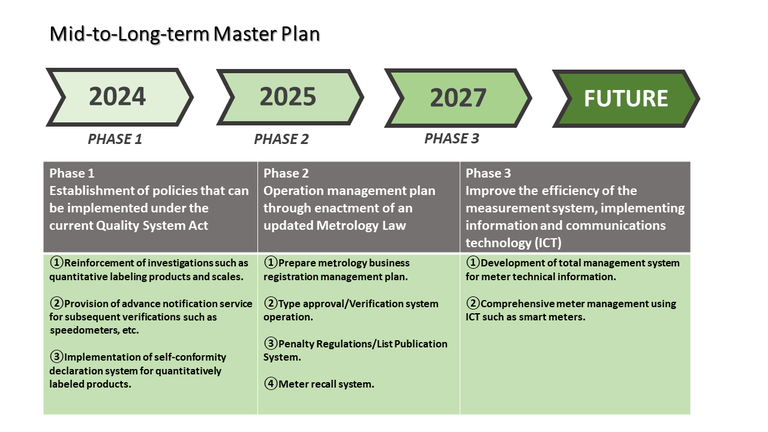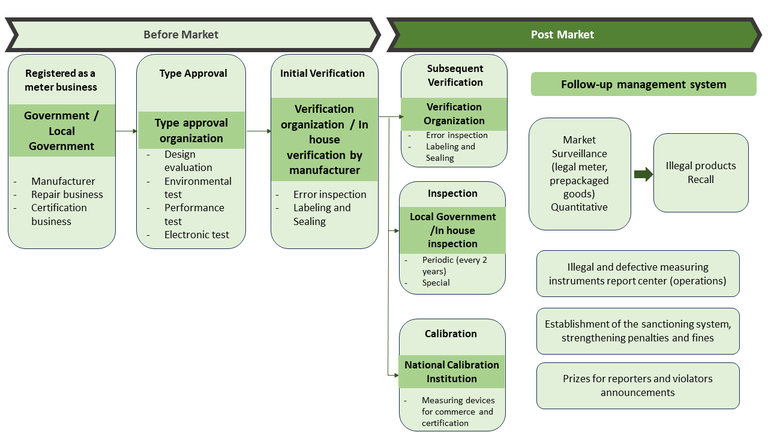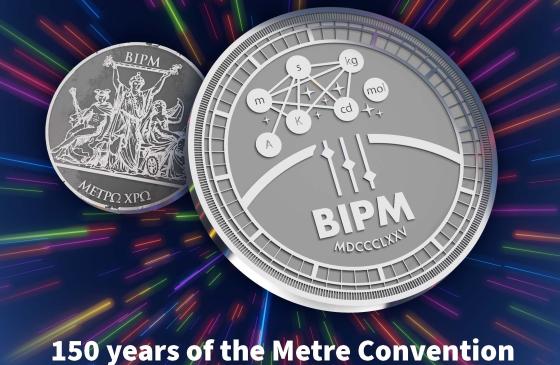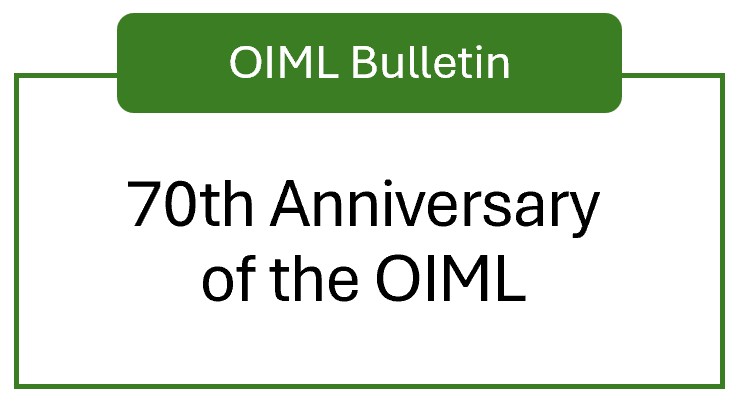OIML BULLETIN - VOLUME LXV - NUMBER 3 - JULY 2024
e v o l u t i o n s
The Costa Rican Legal Metrology System
M.Sc. Sandra Marcela Rodríguez Zúñiga
Eng. Francisco Ramírez Montiel
M.Sc. Fernando Andrés Monge
Abstract
The development of the metrology structure in Costa Rica began with the promulgation of Law 46 of 1881 which required the use of the Decimal System, and it was later reinforced by the creation of the National Office of Standards and Units of Measurement responsible for metrology. The Costa Rican Metrology Laboratory took over the role of this office as the governing body of metrology and was tasked with implementing the country’s Legal Metrology System and related regulations.
The beginnings of metrology in Costa Rica
In 1881, Costa Rica enacted Law No. 46 establishing a Decimal Metric System of Measurements (1) in the interest of promoting economic expansion through its primary export, coffee. While developed countries created their National Metrology Institutes (NMI) at the end of the 19th century and the beginning of the 20th century, Costa Rica took its first steps to develop part of the components of the Metrology Standardization Testing and Certification System (MNPC) in 1951. However, it was not until a historic step was taken in 1973 with the publication of Law No. 5292, which decreed the mandatory use of the International System of Units (SI) and excluded the use of any other system of units. The law also created an office of the government, the National Standards and Units of Measure Office (ONNUM) (2).
The ONNUM was the first NMI for Costa Rica. It has evolved enormously since its creation, providing traceable calibration services in various quantities, with measuring facilities, instruments, and trained personnel. This evolution would have been impossible without international support received from the Inter-American Development Bank (IDB), German cooperation through the Physikalisch-Technische Bundesanstalt (PTB), and the United Nations Industrial Development Organization (UNIDO). The ONNUM began operations in several areas of quality infrastructure including standardization of national emission regulations and conformity assessment (primarily for chemical testing). In the area of legal metrology, it was limited to carrying out verifications of commercial scales and fuel pumps, without having adequate regulations to establish limits of acceptance or sanctions.
In 2002, the National Quality System (SNC) was created through Law No. 8279. Following this, the Costa Rican Metrology Laboratory (LACOMET) (3) was created as the successor to the ONNUM. The SNC is the structural framework of activities linked to the development and demonstration of quality, which facilitates compliance with international conformity assessment standards and implements a structured quality assurance plan that promotes economic development in the country. LACOMET is a governing body and promoter of the national development of metrology. Its primary role is to ensure the traceability and reliability of measurements carried out at the national level and to disseminate national standards that promote accuracy in the use of measuring instruments applied to research, industry, and commerce.
Through the years, LACOMET functions have been strengthened through International Cooperation projects such as cooperation with the National Research Council Canada (NRC) for technical support in developing internationally recognized measurement services and accreditations, with the European Union through the PRACAMS and PROCALIDAD projects which provided a new vision of legal metrology in accordance with international regulations, and many other collaborations within the Interamerican Metrology System (SIM) (4-5).
Status of legal metrology in Costa Rica
In Costa Rica there is no dedicated and broad “Metrology Law” that supports or enforces legal metrological control. However, there are distinct metrological regulations for legal measuring instruments such as sphygmomanometers, breathalyzers, and devices for measuring vehicle speed, which require initial and periodic verification to be carried out in accordance with the Law of the National Quality System. By not having a Legal Metrology System that provides guidelines, these regulations are weak because there is no conformity evaluation infrastructure, and enforcement through the imposition of sanctions for violations is limited (only through the law for consumer protection, Law 7472, article 34, clause n). Furthermore, authorities there are limited in personnel and financial resources.
To provide a solution to this problem, a new project was approved in 2021 to strengthen the legal metrology capacity of Costa Rica, with the support of the Korean International Cooperation Agency (KOICA). The project was established to last three years and intends to develop a roadmap to establish a Legal Metrology System. In addition, to achieve its implementation in a systematized manner and guaranteeing resources, the 2022–2027 Institutional Strategic Plan of the Costa Rican Metrology Laboratory (PEI) was prepared accordingly.
The strategic lines of the PEI related to legal metrology have three specific objectives:
- The first objective is the development of the legal metrology infrastructure of Costa Rica, including a framework for metrological control, conformity evaluation, and the Metrological Supervision System.
- The second specific objective is to increase legislation for the metrological control of measuring instruments used in consumer protection, health, safety, and the environmental sectors, through revising and developing new regulations that respond to the needs of the country.
- The third specific objective is to establish a systematized mechanism for enforcing metrological controls that is to be carried out through the use of the Metrological Verification Units (UVM), market surveillance, and monitoring of compliance with current metrological regulations in an effective and efficient manner.
Legal metrology strengthening plan based on KOICA’s master plans
Legal Metrology Master Plan 1: Modernization of legal metrology in Costa Rica
The purpose of this plan is to maintain fair order in commercial transactions, contribute to the advancement of industries and the development of the national economy by establishing regulations for appropriate measurement instruments, and provide the legal basis for regulations in accordance with the guidelines of the OIML. This legal metrology structure is designed to meet the needs and resources of the country, as informed by data from the Ministry of Economy, Industry and Commerce (MEIC). It is proposed to generate the regulatory framework for the development of legal metrology activities in the country through a legal metrology network and its respective regulations for consumer protection, health, safety, and the environment. A proposed product of this effort is a national Legal Metrology Law and the respective binding regulations.

Figure 1: Timeline for the implementation of Master Plan 1
The proposed Metrology Law aims to establish a national metrological infrastructure to ensure the correct use of measurement units, promote metrological controls for instruments used in commercial transactions, and facilitate reliable measurements for healthcare, safety, and the environment. It aims to regulate the trade of measuring instruments imported from Costa Rica, as well as prepackaged products. The Law also provides for the dissemination of metrology services at the national level and educational programs. The scope of this Law is applicable to measurement systems, methods, and instruments used in any form of commercial transaction, including information technology and telecommunications.
This law under development is based on OIML D 1 National metrology systems – Development of the institutional and legislative framework. Since Costa Rica is a small country with few manufacturers of measuring instruments, importers will have responsibilities usually held by manufacturers to demonstrate conformity to requirements for entering the market. This includes conformity evaluations, which is the type approval of legal measuring instruments. Several schemes are accepted such as the OIML Certification System (OIML-CS) and those included in the Conformity Assessment Procedures regulation based on the European Union schemes and ISO 17067 Conformity schemes assessment — Fundamentals of product certification and guidelines for product certification schemes (6,7).
LACOMET has responsibility to carry out the approval of the Conformity Assessment Certificates, to determine equivalence with the specific regulations for each measuring instrument, and to issue Type Approval Certificates and the national marking authorizations required for measuring devices to be marketed in Costa Rica. Prior to the use of each legal measuring instrument or import-purchase lot, the (initial) verification must be carried out in accordance with the requirements established in the applicable technical regulations. Once measuring instruments have entered the market (in use), they are systematically monitored through periodic verification, consumer surveillance, and enforcement of sanctions for non-compliance, among others (8).
Figure 2: Conformity assessment stages for legal measuring instruments
Legal Metrology Master Plan 2: Designation System of Authorized Verification Bodies
This plan is linked to objective 3 of the Strategic Plan: Metrological Supervision. To accomplish the goals of this plan, the regulation concerning recognition of Metrological Verification Units (UVM), which are the organizations authorized to carry out metrological verifications of legal instruments, was updated. The authorization process for the UVM evaluates the technical competence of personnel. This includes educational and training requirements, as well as the need to demonstrate technical knowledge, skills, and experience. The UVM also evaluates metrological resources such as measurement standards and measuring instruments employed to establish metrological traceability and assess accuracy levels required by regulation. The UVM retains documents and records on the verification process, the validation of spreadsheet procedures, the estimation of uncertainty, and the evaluation of conformity.
A self-verification operator designation system will also be included. Under this system, a company will verify and issue a verification certificate after passing a series of procedures for checking whether an instrument produces measurement results within the allowed tolerance ranges. Finally, all legal measuring instruments, such as weighing instruments and water meters, must be approved by a third-party verification body to ensure their reliability and accuracy. However, once the operator is designated as a self-verification operator, they can execute the verification themselves. The self-verification operator system is more rapid and has the advantage of reducing verification costs, improving productivity and market surveillance at the national level. This system is intended to be implemented as a pilot plan for sphygmomanometers owned by the Costa Rican Social Security Fund CCSS (State hospitals and health centers), carried out by the maintenance and verification unit.(9)
Legal Metrology Master Plan 3: Expansion of Costa Rica’s Legal Metrology Services
This plan is linked to specific objective 2 of the Strategic Plan: Increase metrological legislation. To expand metrology services and establish a verification system, clear technical regulations regarding measuring instruments should be established with corresponding specified contents and regulations. The authority to set metrological criteria and regulations is provided through the Metrology Law. In addition, administrative regulations regarding service rates, metrological verification, periodic inspection, and monitoring are to be included. The technical regulations of legal measuring instruments cover type approval and verification requirements. This document (Master Plan 3) specifies the requirements for grain moisture meters, electric vehicle chargers, fuel dispensers, water meters, and energy meters. The plan, which has been reviewed, defines and stipulates requirements for rates, calibration procedures, management of non-compliant meters, and other means of monitoring (surveillance supervision) (10).
KOICA project proposals for the improvement of the Legal Metrology System began with a pilot plan for smart energy meters. In Costa Rica, there are meters manufactured according to European, American, and Asian regulations. Therefore, the approval of specifications and compliance criteria was the first task to be carried out. This was done through a Criteria Homologation Workshop attended by companies that supply and distribute public electricity services, the Public Services Regulatory Authority, and LACOMET.
During the workshop, the operation of the Legal Metrology System and the importance of metrological controls for measuring instruments were explained based on the following criteria:
- environmental and electrical variables: temperature control, relative humidity, supply voltage control, current control, phase angle control, frequency control, waveform distortion, insulation control, electric field control, magnetic control, and other specifics;
- minimum considerations for contributions to uncertainty: analysis of historical trends, definition of the standard, historical uncertainties due to repeatability, and reproducibility for each type of meter;
- the decision rule for acceptance or rejection at specific points of the verification tests; and
- criteria on the issuance of complete or simplified certificates (suitable or not suitable), considering the needs of the subscriber or end user.
It was emphasized that OIML G 20:2017 Surveillance of utility meters in service based on sampling inspections will be used to establish the metrological control required to maintain the quality and performance of public service meters used for billing purposes and will be complemented by the use of OIML G 19:2017, The role of measurement uncertainty in conformity assessment decisions in legal metrology (11-12).
Another important component for the legal metrological control of measuring instruments with an integrated digital component is the validation of their software/firmware. According to the IDB document Metrology 4.0 - Challenges of digital transformation for metrology in Latin America and the Caribbean (October 2019), the importance of digitalization in legal metrology is a high priority, with verification services being a key topic. Software verification is an essential activity to ensure the reliability, security and traceability of measurements made by measuring instruments in the digital era. Software increasingly controls their functions and results and must be subject to rigorous and systematic scrutiny by competent authorities. Errors in measuring instrument software can have a significant impact on the quality of measurements, which can lead to erroneous decisions in auditing, business transactions, production, research, environmental controls, and medical diagnosis. In this regard, both OIML D 31 and WELMEC 7.2 are documents proposed as guidelines to provide general requirements for software-controlled measuring instruments. These requirements cover functional and constructive aspects of software, in consideration of specific configurations, with the aim of providing guidelines for its evaluation and security (13–14).
Conclusions
The process of implementing the SI and metrological infrastructure in Costa Rica has gone through several stages since the first promulgation. This has included updates to legislation and the development of systems for ensuring compliance; a process that has taken more than a decade. We are currently continuing work to establish on a legal metrological control structure in accordance with the guidelines of the OIML.
References
- Law No. 46 Autoriza Poder Ejecutivo Dictar Sistema Decimal
- Law No. 5292 Uso Exigido Sistema Internacional Unidades Medida "SI" Métrico Decimal
- Law No. 8279 Ley Sistema Nacional para la Calidad
- Rodríguez Historia de la Metrología de Costa Rica, Proceso de Implementación del Sistema Internacional de Unidades Revista Española de Metrología https://www.e-medida.es/numero-10/historia-de-la-metrologia-en-costa-rica.
- Zapata C. Historia y perspectivas de desarrollo de la Metrología en Costa Rica. Recopilación bibliográfica de funcionarios de la ONNUM-MEIC. San Pedro, Octubre – 2002
- OIML D 1 National metrology systems – Development of the institutional and legislative framework
- ISO 17067 Conformity schemes assessment — Fundamentals of product certification and guidelines for product certification schemes
- Legal Metrology Master Plan 1 Modernization of Legal Metrology of Costa Rica
- Legal Metrology Master Plan 2. Designation System of Authorized Verification Bodies
- Legal Metrology Master Plan 3. Expansion of Costa Rica's Legal Metrology Services
- OIML G 20:2017, Surveillance of utility meters in service on the basis of sampling inspections
- OIML G 19:2017, The role of measurement uncertainty in conformity assessment decisions in legal metrology
- OIML D 31 General requirements for software-controlled measuring instruments
- WELMEC Guide 7.2 Software Guide (EU Measuring Instruments Directive 2014/32/EU) Version 2022
Authors
M.Sc. Sandra Marcela Rodríguez Zúñiga
Head of Legal Metrology Department
Costa Rican Metrology Laboratory
Chair Legal Metrology Working Group SIM
srodriguez@lcm.go.cr
Eng. Francisco Ramírez Montiel
Legal Metrology Department Coordinator
Costa Rican Metrology Laboratory
framirez@lcm.go.cr
M.Sc. Fernando Andrés Monge
Director
Costa Rican Metrology Laboratory
Coordinators Camet SIM
fandrés@lcm.go.cr







